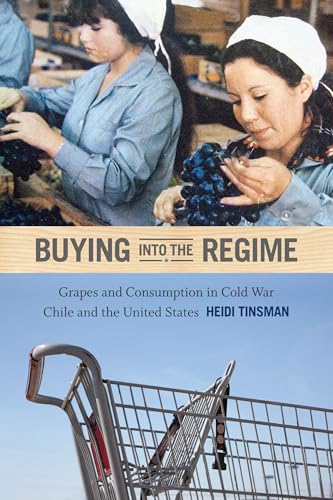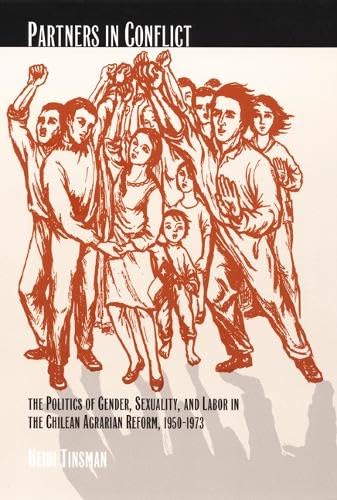Books by Heidi Tinsman
Buying into the Regime: Grapes and Consumption in Cold War Chile and the United States (American Encounters/Global Interactions)
Author(s): Heidi Tinsman
Publication date: 2014-01-13
ISBN: 0822355353, ISBN-13: 9780822355359
Imagining Our Americas: Toward a Transnational Frame (Radical Perspectives)
Author(s): Sandhya Shukla, Heidi Tinsman
Publication date: 2007-07-20
ISBN: 0822339617, ISBN-13: 9780822339618
Scholars of literature, ethnic studies, and regional studies as well as of anthropology and history, the contributors focus on the Americas as a broadly conceived geographic, political, and cultural formation. Among the essays are explorations of the varied histories of African Americans’ presence in Mexican and Chicano communities, the different racial and class meanings that the Colombian musical genre cumbia assumes as it is absorbed across national borders, and the contrasting visions of anticolonial struggle embodied in the writings of two literary giants and national heroes: José Martí of Cuba and José Rizal of the Philippines. One contributor shows how a pidgin-language mixture of Japanese, Hawaiian, and English allowed second-generation Japanese immigrants to critique Hawaii’s plantation labor system as well as Japanese hierarchies of gender, generation, and race. Another examines the troubled history of U.S. gay and lesbian solidarity with the Cuban Revolution. Building on and moving beyond previous scholarship, this collection illuminates the productive intellectual and political lines of inquiry opened by a focus on the Americas.
Contributors. Rachel Adams, Victor Bascara, John D. Blanco, Alyosha Goldstein, Héctor Fernández L’Hoeste, Ian Lekus, Caroline F. Levander, Susan Y. Najita, Rebecca Schreiber, Sandhya Shukla, Harilaos Stecopoulos, Michelle Stephens, Heidi Tinsman, Nick Turse, Rob Wilson
Partners in Conflict: The Politics of Gender, Sexuality, and Labor in the Chilean Agrarian Reform, 1950–1973 (Next Wave: New Directions in Women's Studies)
Author(s): Heidi Tinsman
Publication date: 2002-06-13
ISBN: 0822329220, ISBN-13: 9780822329220
Tinsman restores women to a scholarly narrative that has been almost exclusively about men, recounting the centrality of women’s labor to the pre-Agrarian Reform world of the hacienda during the 1950s and recovering women’s critical roles in union struggles and land occupations during the Agrarian Reform itself. Providing a theoretical framework for understanding why the Agrarian Reform ultimately empowered men more than women, Tinsman argues that women were marginalized not because the Agrarian Reform ignored women but because, under both the Frei and Allende governments, it promoted the male-headed household as the cornerstone of a new society. Although this emphasis on gender cooperation stressed that men should have more respect for their wives and funneled unprecedented amounts of resources into women’s hands, the reform defined men as its protagonists and affirmed their authority over women.
This is the first monographic social history of Chile’s Agrarian Reform in either English or Spanish, and the first historical work to make sexuality and gender central to the analysis of the reforms.
UC-Irvine : History
- Sharon Block
- Alex Borucki
- Anita Casavantes Bradford
- Vinayak Chaturvedi
- Yong Chen
- Ian Coller
- Touraj Daryaee
- Alice Fahs
- Sarah Farmer
- Qitao Guo
- Douglas Haynes
- Andrew Highsmith
- David Igler
- Adria Imada
- Winston James
- Matthias Lehmann
- Mark LeVine
- Jessica Millward
- Laura J. Mitchell
- Robert G. Moeller
- Susan Morrissey
- Rachel O'Toole
- Allison Perlman
- Kavita Philip
- Ana Elizabeth Rosas
- Vicki Ruiz
- Sharon Salinger
- Patricia Seed
- Heidi Tinsman
- Steven Topik
- Jeffrey Wasserstrom
Most popular books
Link to this page using the following URL: https://www.facultybookshelf.org/author/heidi_tinsman


